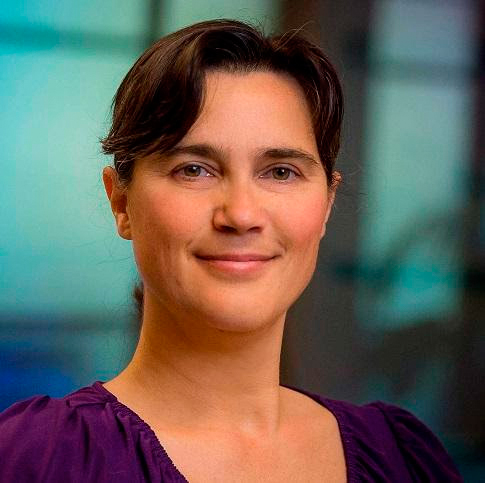CSE Professor Elevated to IEEE Fellow in Class of 2018
CSE/CNS Professor Tajana Rosing has been elected a Fellow of the Institute of Electrical and Electronics Engineers (IEEE). She is one of five Jacobs School of Engineering faculty members elevated to be part of the IEEE Fellows class of 2018. (Others include ECE’s Massimo Franceschetti and David Whelan, as well as MAE’s Sonia Martinez and James Friend.)
IEEE honored Rosing for her “contributions to power and reliability management of Systems-on-Chip.”

In the past year, Rosing was named holder of the John J. and Susan M. Fratamico Endowed Chair in the Jacobs School of Engineering. She also became co-director of the Artificial Intelligence and Healthy Living Center (AIHL), a new joint center between UC San Diego and IBM Research. The groundbreaking center promotes critical research and applications in two thematic areas: Healthy Aging (led by Rosing) and the Human Microbiome (led by CSE and Pediatrics professor Rob Knight), together with co-directors from IBM Research.
Rosing leads the System Energy Efficiency Laboratory (SEELab) in CSE. The lab focuses on energy efficiency in all kinds of systems, from sensor nodes to smart cities. In addition to energy-efficient computing, her primary research interests include context-aware computing, human-cyber-physical system design, embedded systems hardware and software design, resource management at the system level, and the design of approximate and highly efficient architectures. In her current research, Rosing investigates efficient, distributed data collection, aggregation and processing of data in the context of smart cities, wireless healthcare, as well as Internet of Things applications.
“Professor Rosing’s creativity and approach to research have had a deep impact on innovation in computer engineering,” said CSE chair Dean Tullsen. “Her elevation to be an IEEE Fellow is well-deserved in light of her many contributions to the field of energy efficiency in computing systems.”
Rosing’s recent work builds on her use of information present in wireless systems to achieve more efficient system operation. She focuses on efficiently extracting knowledge about context from sensing observations of human behavior and needs as well as from stationary or mobile environmental sensing systems. Rosing has leveraged that knowledge to implement distributed control algorithms for large-scale Internet of Things applications underlying Smart Cities infrastructure. A recent example includes using drones to detect areas of higher air pollution collaboratively and dynamically, and to provide this feedback in real time in emergencies (e.g., forest fires), and in normal daily life (such as air pollution due to recent fertilization of nearby fields, or due to higher than normal and localized smog conditions).
The computer engineer has also leveraged context to optimize the operation and design of embedded systems by maximizing energy efficiency in exchange for controllable and tolerable inaccuracies in computation. According to Rosing, this research has resulted in systems that are up to 1,000 times more energy efficient with less than a 10 percent error in computation. “These systems are especially applicable to many Internet of Things applications where the data sources themselves are not completely accurate,” said Rosing.
Among other real-world impacts coming out of her research, Rosing cites a longer battery life for smartphones. “My work involves optimizing the battery life, communication and storage of portable electronic devices, including cell phones, laptops and sensors,” she said. “I also work on large systems… optimizing smart servers to maximize quality of service while minimizing power consumption. This research translates into significant energy savings.”
Prior to joining the CSE faculty in 2005, Rosing was a full-time researcher at HP Labs, focusing on low-power wireless media and embedded systems. While at HP Labs in Palo Alto, she finished her M.S. and Ph.D. degrees at Stanford in 2000 and 2001, respectively. Rosing’s doctoral dissertation topic was “Dynamic Management of Power Consumption.” Prior to HP Labs and Stanford, she worked as a senior design engineer at Altera Corporation.
In addition to her primary faculty appointment in CSE, the computer-engineering professor is an adjunct professor in ECE and she is affiliated with the Contextual Robotics Institute, Qualcomm Institute and San Diego Supercomputer Center, as well as six other UC San Diego research centers focused on Networked Systems (CNS), Microbiome Innovation (CMI), Wearable Sensors (CWS), Energy Research (CER), Sustainable Power and Energy, and the newly-launched Center for Machine-Integrated Computing and Security (MICS).
